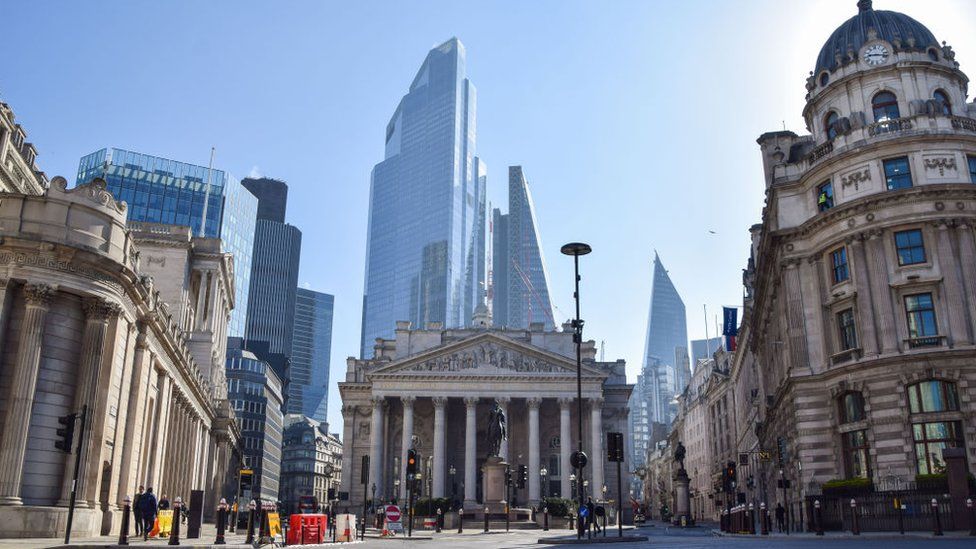City of London to convert offices into homes in post-Covid revamp
- Published
- comments

The City of London is planning to convert empty offices into housing in a bid to revive the area after the Covid crisis.
The City of London Corporation, which looks after the Square Mile, is aiming for at least 1,500 new homes by 2030.
Its policy chair said firms had told them their operations will change to accommodate flexible working.
Current government guidance says people in England should work from home if possible.
During the pandemic, many city centre areas have been left deserted as workers stayed at home to reduce the risk of transmitting the virus.
As part of a recovery strategy, the Corporation has set out how it will "rise to the challenge of adapting to the new normal that emerges after the pandemic."
It plans to use a mixture of new schemes and refurbishments of old buildings to meet its housing target.
The Corporation said this would include at least 35% affordable housing "with an ambition to deliver higher levels of affordable housing where this is viable".
Although the area in and around the City dates back over 2,000 years, most of its housing stock was built in the late 1960s, according to estate agents Knight Frank.
In March 2020, there were about 7,850 residential units in the area many financial services firms call home - mostly found across purpose-built estates.
Under the new proposals published on Tuesday, long-term lets in empty buildings could be offered to creatives, while it will also try to attract "high-potential tech-led businesses" to the area with improvements like making 5G available across the area.
Catherine McGuinness, policy chair at the City of London Corporation, said the body had been trying to listen to companies and how their needs have changed during the pandemic.
"Firms have told us that they remain committed to retaining a central London hub but how they operate will inevitably change to reflect post-pandemic trends, such as hybrid and flexible working.
"The Square Mile must evolve in order to provide an ecosystem that remains attractive to workers, visitors, learners and residents."
The pandemic has accelerated a shift to a new way of working that has seen many firms shake up routines. BP staff, for example, are set to work from home two days a week going forward.
IWG, the world's biggest flexible workspace provider, also expects a big jump in demand once pandemic subsides and "hybrid working", a mixture of going in and working from home, becomes more common.
The firm, formerly known as Regus, recently struck a deal with London-based bank Standard Chartered which will provide its 95,000 employees access to 3,500 offices, which are found across suburbs and cities.
However, others such as investment bank Goldman Sachs have rejected remote working as the "new normal", with chairman and chief executive, David Solomon, calling it an "aberration".
Related Topics
- Published7 July 2020
- Published1 April 2021
- Published24 April 2021